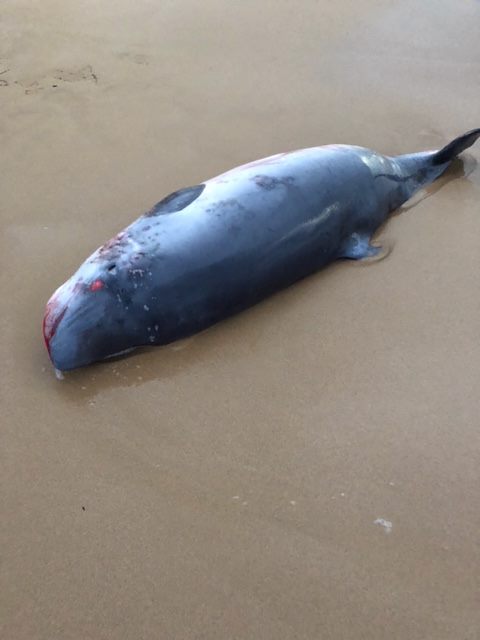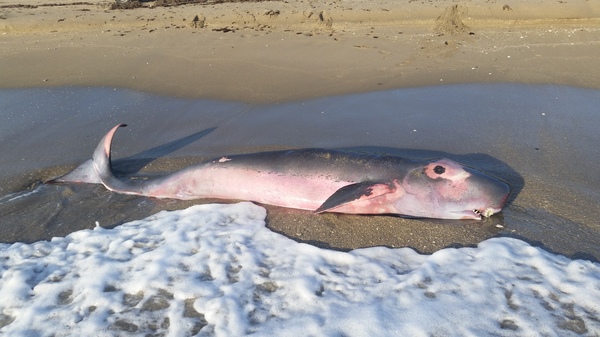A whale has washed up dead at Breamlea after well-meaning locals pushed the mammal back out to sea twice, authorities confirmed on Wednesday.
On Saturday the Department of Environment, Land, Water and Planning (DELWP) responded to reports of a whale washing ashore at Bancoora Beach.
But when wildlife officers arrived on site, they found members of the public had rolled the whale back out to sea twice.
Officers found the previously missing dwarf sperm whale dead at Breamlea, DELWP confirmed on Wednesday.
DELWP incident controller Barry James warned the public against approaching beached whales or pushing them back out to sea.
“Live beached whales and dolphins are in a distressed state,” he said.
“Often, they have come ashore as their health is compromised in some way, and they have got into difficulty.”
Mr James instead urged the public to phone wildlife officers and leave the rescue to them.
“Successful refloating requires a veterinary assessment, followed by period of stabilisation by trained responders,” he said.
“We recommend they keep other people and dogs away, and immediately contact the Whale and Dolphin Emergency Hotline on 1300 136 017.
“By being too close to a beached whale or dolphin, members of the public risk being hit by a tail, or being rolled on in the surf.”
On Saturday wildlife officers responded to reports of a separate whale washing ashore at Thirteenth Beach, according to DWELP.
Wildlife officers found the dwarf pilot whale dead.
“DELWP has collected samples and measurements, and these will be provided to the Melbourne Museum for identification and research purposes,” Mr James said.
The carcass is located in an area of the foreshore that is dangerous to access due to rocks and rising water, Mr James said.
“We are asking the public to stay away from the carcass, as whale remains are protected by law and must not be interfered with.”
DELWP will undertake a necropsy of the 3.4 metre carcass to identify the cause of death.
“DELWP is working with the Barwon Coast Committee to arrange the removal of the carcass, when tide conditions make it safe to do so,” Mr James said.
“There are also health risks associated with whale decomposition, including the possibility of pathogens from whale carcasses being harmful to humans.”










